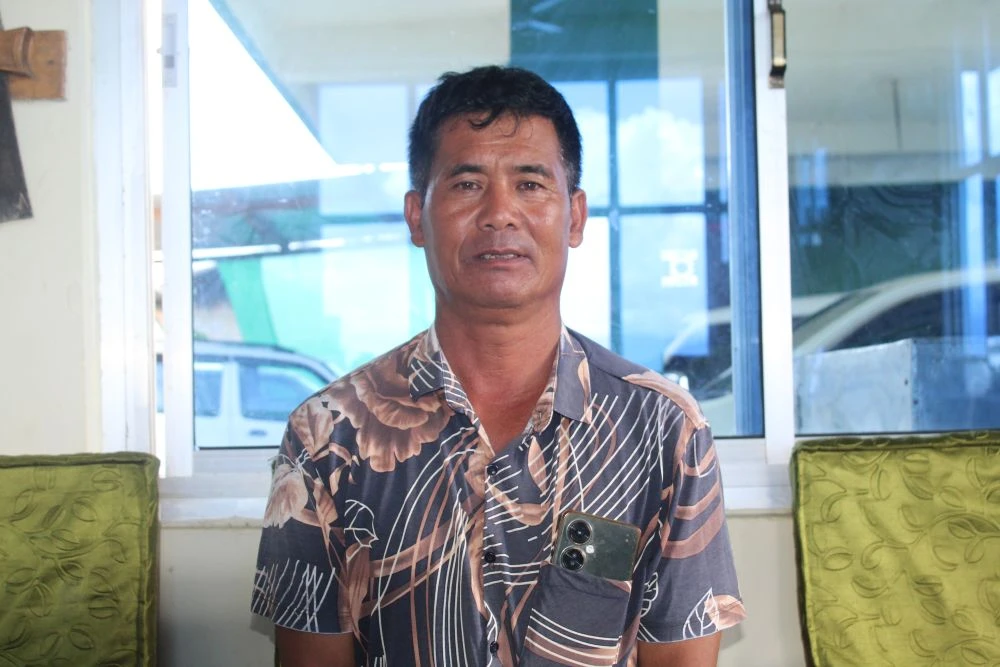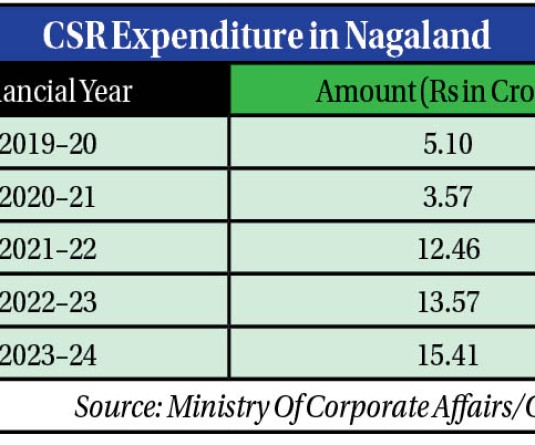RO Mineral Plant in Sukhalu Village Zunheboto. (Morung Photo)
RO Mineral Plant brings clean water in Sukhalu village
Morung Express News
Zunheboto | August 18
A Reverse Osmosis (RO) Mineral Water Plant set up in Sukhalu village under Zunheboto district has been providing clean, safe drinking water to the community since its launch in January 2021. The plant is owned and operated by Khetoho Yeptho, who started the initiative from his makeshift home with a personal investment of approximately Rs 4–5 lakh.
With the motto “Save Water, Secure the Future,” Yeptho says his primary motivation is to help the people of his village and the wider Zunheboto area by providing access to clean and hygienic drinking water. The plant sources its water from a natural stream in the village forest, which flows year-round and is known for its purity.
“The water we use is natural and very clean,” said Yeptho. “That is why we do not have to replace the filters every year like most RO plants. I only clean the filter parts every two to three years, as the water contains very few impurities.”
The continuous and non-seasonal flow of water has made it easier for the plant to maintain a steady supply. The water is filtered using an RO mineral plant machine, ensuring that it meets health and hygiene standards.

Initially, the plant was more active in terms of distribution. Water was transported directly by the owner and his team to consumers in Zunheboto town. However, due to limited manpower and other challenges, the supply has decreased over time. “In the beginning, we were more involved and transported the water ourselves,” he explained. “But gradually, we lost interest and activity slowed down. Now, only a few bottles are produced, and some consumers come directly to our house to purchase the water.”
Despite the slowdown, there remains consistent demand from individuals, churches, offices, and private institutions in Zunheboto, many of whom travel to Sukhalu to purchase the water.
Looking ahead, Yeptho has ambitious plans to scale up the operations. He envisions expanding the plant’s capacity to manufacture smaller bottled water units, including half-liter and one-liter bottles. “The 20-liter bottles are not convenient for many customers,” he said.
“Also, they don’t take proper care of the bottles. Sometimes they pour hot water into them, making them unusable and below standard.”
By introducing smaller-sized bottles, Yeptho hopes to cater to a broader market and improve convenience for consumers. He believes this step will also ensure better hygiene and longer usability of the containers.
More than just a business venture, Yeptho views his RO plant as a way to contribute to public health and well-being. “My goal is not just to sell water,” he stated. “I want people to use clean, natural water and stay healthy. That is why I started this to help others and provide a reliable source of safe drinking water.”
Efforts are currently underway to revive the plant’s operations and increase production capacity.






